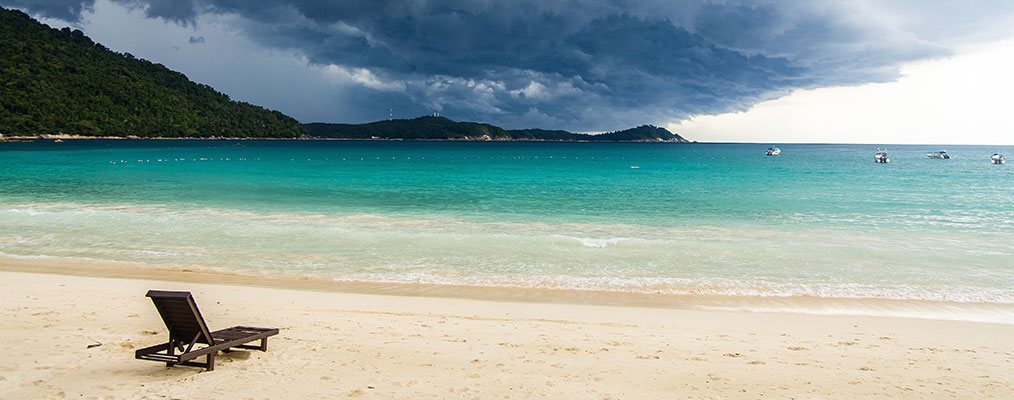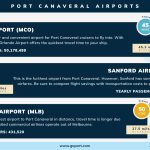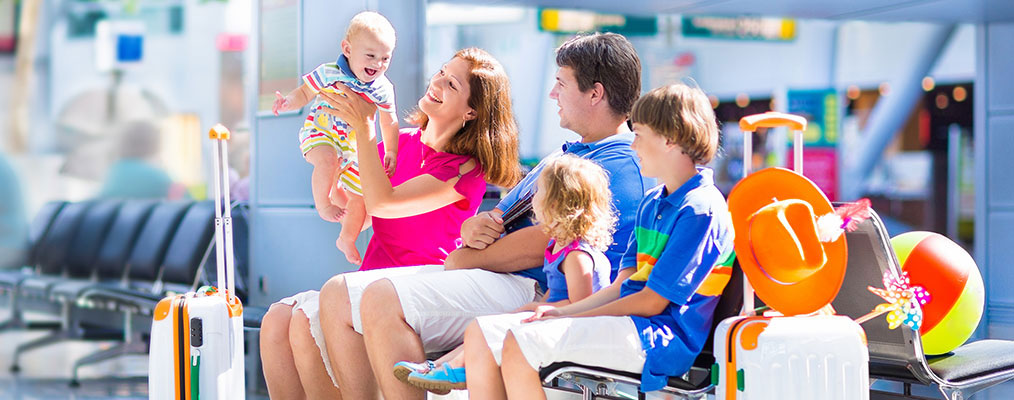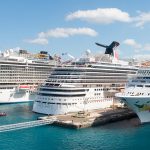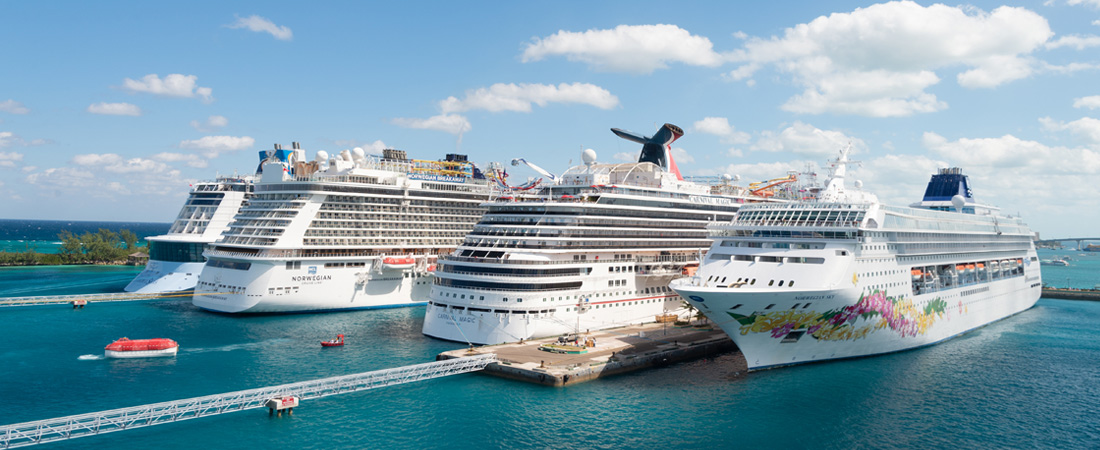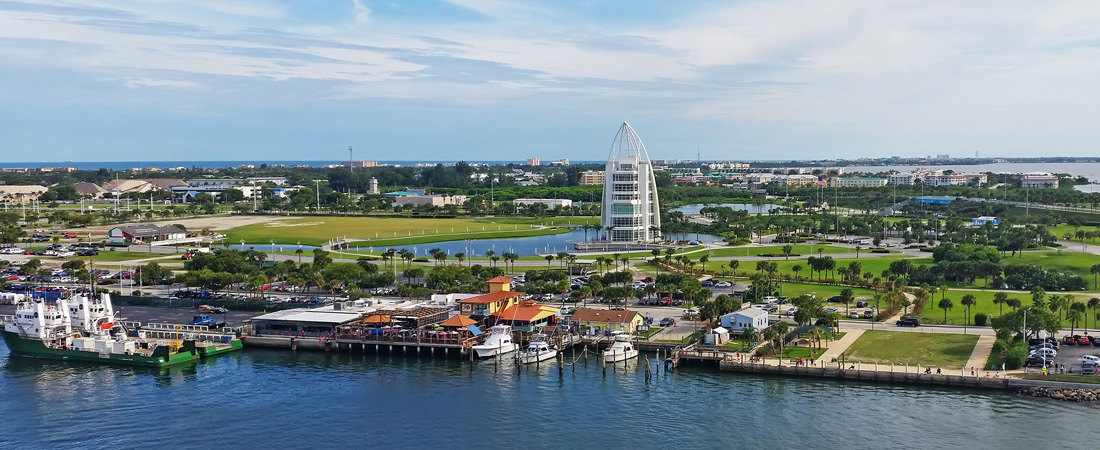Cruising during hurricane season can be a gamble, but if you run the numbers right it’s often one worth taking. We’ve all heard horror stories of choppy seas, closed ports of call, forced itinerary changes, and damaged destinations, but the reality is: Taking a hurri-cruise isn’t as scary as it sounds. Here we’ll share a few of our favorite tips to get you though your hurricane season cruise.
1. Get a Deal

The six-month hurricane season stretches from June 1st to November 30th. Sailing during this time frame is one of the best ways to score a deal on your cruise, but you need to know when to book. June to August won’t offer much savings as cruise ships are over-crowded by the summer vacation rush. You’ll find the biggest discounts during peak season from mid-September to mid-October.
2. Know Where to Go

3. Be Flexible

The chances of a cruise line calling it quits due to a storm are slim, but that doesn’t mean changes to your itinerary are not a possibility. If you’re taking a cruise during hurricane season, be prepared to be a bit spontaneous if your cruise line decides to re-route the ship or switch ports. Your captain may just swap out that stop in St. Thomas for a safer harbor in Aruba. Or if circumstances are dangerous enough, you may not dock at all. Not to worry though, ships are equipped with plenty of onboard activities for those extra stormy days at sea.
4. Fly in Early

Even if your actual cruise itinerary remains unchanged, your flight schedule may still be subject to delays. No matter where you’re flying in from, there’s always a possibility that a storm may interrupt your plans to get to the port. Air travel can be unpredictable and any cancellations at one airport can affect things across the whole U.S. To be safe, you’ll want to arrive a day or two before your sail date to prevent any last minute travel complications. If you’re sailing from Port Canaveral, Go Port offers packages including a hotel stay, airport transportation and cruise transfers, all for one low price.
5. Buy Insurance

Cruise lines are not liable for inclement weather. Therefore, you’ll want to get travel insurance to make sure you’re compensated in the event that you incur any delays, interruptions or cancellations on your cruise due to a storm. The best time to sign up is right before your final payment is due. This is because you’re committed to going on the cruise and can’t back out without penalty, but it’s still early enough that you’ll be covered for any unforeseen events that pop up at the last minute.
6. Prepare for the Worst– And Hope for the Best

Although your captain will steer clear of any hurricanes, you may face some stormy seas as your ship skirts the edges of a storm. It’s wise to be prepared; Bring aboard a poncho, sturdy umbrella, and even your favorite seasickness remedy. Also consider packing extra toiletries, clothes and any medication you may need onboard in case a delay is announced.
7. Don’t Rent a Car

If you were planing on renting a car to get to the terminal, you may want to reconsider. Especially during hurricane season. Flooding rains, storm surge, and 75+ mile per hour winds can wreak havoc on a cruise port. And with any rental car agreement, you are liable for all damages that occur to the vehicle, even if you’re at sea. To avoid returning from your vacation only to find an unwelcome palm tree riding passenger, simply set up cruise transfers to take you to the terminal. If you’re cruising from Port Canaveral, Go Port offers round-trip packages between Orlando International Airport and Port Canaveral for $30 per person.
8. Monitor the Weather

Even though your ship can easily outrun a hurricane, you’ll want to be aware of any inclement weather prior to your trip. Start monitoring storms about a week before you set sail. If it looks like a hurricane is headed for your port of embarkation, contact your cruise line directly to see if any contingency plans are necessary.
9. The Cruise Must Go On

Cruise lines will do everything in their power to ensure the “cruise goes on.” Ships will be redirected around a storm and destinations will be altered in order to keep passengers away from inclement weather. The only time your cruise may be outright cancelled is when a hurricane is heading straight for its major port of embarkation. And even in such cases, it’s an unusual outcome. More often than not, your departure date will just be delayed by a day or so and passengers will be compensated accordingly.
10. Ask About Your Options

As a general rule, cruisers are not entitled to any compensation due to storm-related changes such as missed ports, shorter stays, or a totally new itinerary. You’ll only get a refund if your cruise is cancelled or cut short. But, that doesn’t mean you should shy away from asking the cruise line if they are offering anything for the inconvenience. You may be entitled to refunds on port fees, onboard discounts, or even assistance with travel plans if your trip is altered.
At the end of the day, when cruising during hurricane season, you need to trust that your captain and crew are putting forth their best effort to fulfill your dream vacation. But passenger safety is the number one priority. You may end up in a different destination than you had originally planned, but you’ll still enjoy a tropical getaway only with a better price tag. So sit back and enjoy the spontaneity and savings that comes with hurricane season cruising. Even if you catch some stormy weather along the way, as us cruise veterans always say “a bad day at sea is better than a good day at work”.
Get the Inside Scoop from Go Port
Stay up-to-date with the latest Port Canaveral cruise news and travel tips!
